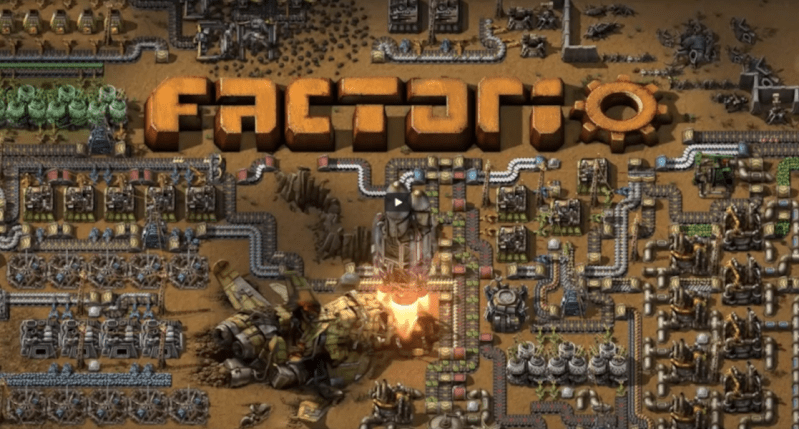Science has affirmatively answered a lot of questions that, looking back, could be seen as bizarre to have asked in the first place. Questions like “can this moldy cheese cure disease” or “can this rock perform math if we give it some electricity.” Among the more recent of this list is the question of whether or not the video game Factorio, in which the player constructs an elaborate factory, can be used as the basis for other academic work. As [Kenneth Reid] discusses in this talk, it most certainly can.
If you haven’t played the game, it’s a sort of real-time strategy (RTS) game where the player gathers materials to construct a factory while defending it from enemies. On the surface it might seem similar to Age of Empires or Starcraft, but its complexity is taken to extremes not found in other RTS games. The complexity hides nuance, and [Kenneth] points out that it’s an excellent simulator to study real-world problems such as vehicle routing problems, decision making, artificial intelligence, bin packing problems, and production planning, among a whole slew of other interesting areas of potential research.
[Kenneth] and his partners on this project also developed some software tools with interacting with a Factorio game without having to actually play it directly. The game includes an API which the team used to develop tools so that other researchers can use it as a basis for simulations and studies. There was a research paper published as well for more in-depth reading on the topic. We shouldn’t be too surprised that a game can be used in incredibly productive ways like this, either. Here’s another example of a toy being used to train engineers working in industrial automation.
















Cracktorio!
The factory must grow
50+ minute video. Oof, this guy is verbose.
Genuine academia.
Settings, playback speed 2x… drag time slider to about 60%…
The factory must grow!
Not a surprise, a well made simulation is robust and repeatable, exactly what science needs. It was noted what, 10 years ago now, if you input the correct variables into Dwarf Fortress it will accurately model geological formation, erosion, and weather as observed in real life locations.
a key feature of Factorio is its Chaotic Determinism once you hit Go. the only inputs are player modifications to the world, everything else is derived from its contextual variables which are themselves derived from the worldstate in a perfectly repeatable way
very important for Doing A Sciencing.
“Doing a Sciencing”. I enjoy that. I shall be using it from now on
Or that the various water-ways, gates, pumps, and switches in Dwarf Fortress can make a Turing Complete computer.
“can this rock perform math if we give it some electricity.”
No. It can’t.
The engineers/programmers are doing the math.
This may seem like pedantry. But it’s actually really important to avoid anthropomorphizing things like this when explaining them to a layman.
Attributing motivation or intelligence to something by saying it “wants”, “learns”, or “thinks” causes a fundimental misunderstanding, which causes problems when people use that understanding to make assumptions.
This is why almost no one actually understands what “evolution” actually means.
Even simple naming is an issue.
Artificial Intelligence?
Machine Learning?
Not even close.
They have more in common with dropping a bouncy ball down a mountain over and over until it lands where you want it to, than they do with “intelligence” or “learning”.
Dropping a bouncy ball down a hill in a measured and recorded location, measuring, recording, and evaluating its final location, and using the score from that run to choose a new starting position near prior starting positions that resulted in higher scores, with just enough randomness to allow for novel spoilers that don’t cluster in simple ways. It’s not just brute force solutions like you seem to suggest.
They never said “wants”, “learns”, or “thinks”.
When I type 6÷2 on a calculator, that calculator legitimately does math, thanks to some engineers and programmers putting some silicon, germanium, quartz, etc. in the right order, using some very clever techniques.
It’s no different than putting some steel, spark plugs, and gasoline in the right order and saying “this engine produces power”. If you’re going to try to claim that it was *actually* the engineer who designed the engine who *ultimately* produced that power, because the engine couldn’t have done it if the engineer hadn’t created it to do so, then you’re arguing metaphysics.
Doing research on if a video game can be used for research is so delightfully meta.
I did a video on process control and factorio:
https://www.youtube.com/watch?v=llwW-oGw2e8